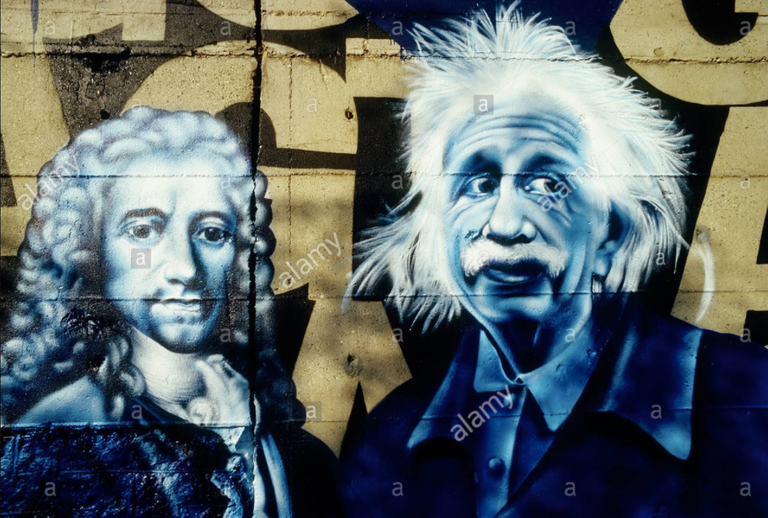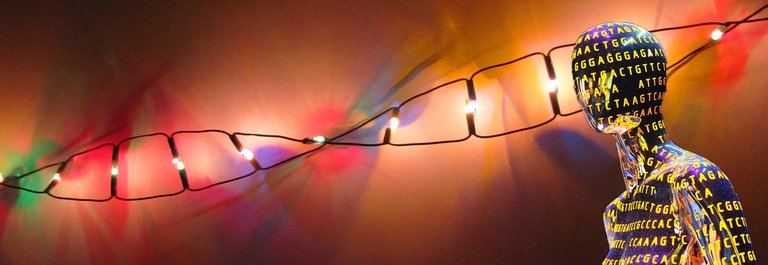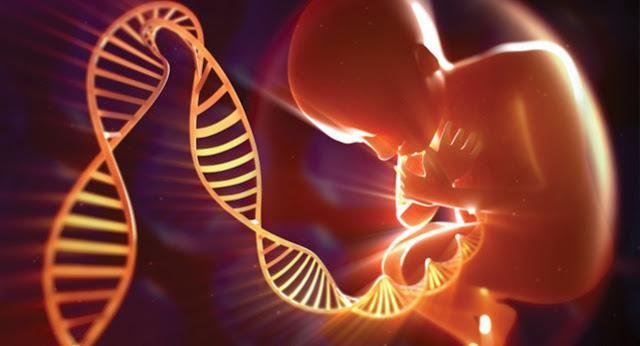A phenomenon that happens to scientists periodically, or whenever they believe they have found an exhaustive knowledge that seems to reveal the secrets of the universe in a definitive way. It happened to classical physics in 1893, when at the crest of Newton's mechanical universe, says Lipton, the Harvard vice president announced that it would no longer be necessary to offer doctorates in physics, since all the riddles of the universe had been unveiled. 2 years later, radioactivity, subatomic particles and X-rays were discovered. Soon after, quantum physics and relativity arrived.

Man tends to sing victory ahead of time and above all to believe that what he knows is definitive - forgetting that knowledge depends on his circumstances and on his own perception (and the collective), or, as Lipton points out, on "biology of belief. Of course it is definitive, but only because when we believe that we already know everything, nothing new fits.
An avatar of this cosmic joke, which is made on the back of the human being, is currently happening according to Lipton. At the end of the 20th century, science was sure that our century would be the century of genetics. By undertaking the Human Genome Project and apparently achieving the most successful collective scientific exercise in history, having revealed the genes that constitute the human being, it was believed that we were close to being able to hack our organism and practically free ourselves of all suffering or illness, simply making some adjustments in their genetic configuration.
If man was only a code - and therefore entirely reducible to a few numbers - we could program happiness or perhaps even immortality. Bruce Lipton captures the general feeling of the moment: It was believed that once the human genome was completed it would provide science with all the information necessary to "cure" all the discomforts of humanity. It was even believed that knowledge of the human genetic mechanism would allow scientists to create a new Mozart or an Einstein.

In recent years the enthusiasm with which the discovery of the human genome was first received has diminished. This does not mean that it was not a discovery of great importance, but it simply was not what we thought, perhaps because we had adopted a deterministic mentality-the equivalent of Newton's mechanical vision-that underestimated environmental factors (which we now know as epigenetic) of a interactive complexity that can not be reduced only to whether a certain gene is present or not.
The paradigm on which the genome's enthusiasm is based is a genetic determinism, the idea that "genes are self-emerging" and that they can be "turned off and on by themselves". These genes are conceived as computer programs "that control the function and structure of an organism," says Lipton, which implies that "the complexity (the evolutionary stature) of an organism is proportional to the number of genes it has. "

Initially, it was estimated that more than 100,000 genes would be needed to code the chemical structures of proteins, since there are between 70,000 and 90,000 proteins in the human body. The other genes must be responsible for determining the characteristics of an organism, that is, regulatory genes that control the activity of other genes. It was estimated that 30 thousand of these genes were needed to orchestrate large quantities of expressions, such as intelligence and emotions. But the human being does not allow himself to be reduced merely to the realm of quantity.

The results of the Human Genome Project concluded that there are only about 34,000 genes in the human genome. This simply indicates, says Lipton, that "the complexity of an organism is not reflected in the genes." Consider the following disparity: a very primitive organism like the Caenorhabditis worm has a body of only 969 cells and yet has 18 thousand genes. The fruit fly, a much more complex organism, consists of only 13,000 genes, although only one eye of this fly has more cells than all of Caenorhabditis. A chimpanzee or a bonobo share 99% of their DNA with humans. Certainly those things that make the man special, those fine aspects that constitute what we most appreciate in life, should not be limited to the genome.

Obviously then the question arises about what controls our life and our destiny if they are not our genes. Lipton believes that the answer is in the environment or more precisely in "our perceptions of the environment." Explain:
The environment, through the act of perception, controls our behavior, genetic activity and even rewrites the genetic code. The cells "learn", evolve creating new proteins of the perceptions that respond to new environmental experiences. "Learned" perceptions, especially those derived from indirect experiences (for example, from parents, colleagues or academic training) may be based on incorrect information or misinterpretations. Since they may or may not be "true", perceptions are reality-beliefs.

Here Lipton introduces us to a quite controversial but equally fascinating concept. From the outset, it erases the line that divides the merely material with the mental, suggesting that perceptions -or that node that connects the organism with the stimuli of the environment- are transformed into genetic material: what we perceive outside integrates with us as our own internal biological structure. That is to say, we are constituted essentially, more than of genes, of units of perception.

The environmental signals activate receptor proteins causing them to join with complementary proteins, [which are the] switches that control the behavior of the cells ... strictly these protein complexes represent units of perception. These molecular membranes of perception also control genetic transcription (the switching off and on of genetic programs) and have recently been linked to adaptive mutations (genetic alterations that rewrite DNA in response to stress).
What implies the above is that the environment, but specifically our perception of the environment, since it does not appear as an absolutely determined influence, is what defines whether we get sick or not. The Disease could be considered as an erroneous or deficient perception of reality that produces stress and activates a harmful gene expression. In the same way that a chronic genetic response to the environment produced by a sustained perception at the molecular level can make us sick, says Lipton, a certain perception supported by a positive belief or a relearning of the correct function can produce a healing response.

Clearly we are approaching lands that go beyond established science and we must warn the unsuspecting reader that Lipton's work is seen by many mainstream scientists as new age pseudoscience. With that warning, let us also remember that "cosmic joke" that usually happens to scientists who quickly fall asleep on their laurels, thinking that they have deciphered the mystery of the universe when they have only managed to see reflected in the world their own convictions in a sufficiently credible way , which are taken as autonomous.

Once enough people are convinced of the truth of that belief, then it becomes a consensual reality. From a philosophical perspective, it may be useful to remember the first verse of the Dhammapada, the text of the Pali Canon, where it says: "Everything we are is the result of what we have thought". Attributed to Buddha, the text goes on to say that the evil or sickness that comes to us is the result of thoughts that deviate from the dharma, the way of the law. We can perhaps substitute thoughts for perceptions. Everything we are is the result of what we have perceived. From here we obtain a much more dynamic definition of the human being, which is shown as a construction work of his perception.
Thought and perception can be two different things, but at a certain level they can come together. A perception of an immaterial reality (like a Platonic idea) could be similar to a thought, an act of consciousness. Thought in its highest function could be considered as a rational or spiritual perception of reality or even as the perception that it is determining reality when thinking. This could be the fundamental act of conscience, more than knowing that we are, knowing that by knowing we create what we are.

We enter into abstruse metaphysical terrains, but to conclude, from Lipton's theory we can sketch a definition, with a poetic touch, of what reality is. Following his idea that a positive perception or in harmony with the environment has the power to restore the balance of the organism, perhaps we could say that the reality is precisely that balance between the subject that perceives and the object (or environment) that is perceived , in which the mind is a mirror of perfectly flawed space: a principle of identity and symmetry between what we are and what we see (and vice versa) or between the noumenon and the phenomenon, both interpenetrated by a mutual influence, an oscillation in which, as Yeats said, the dancer of the dance can not be distinguished.
Buddhism is a path of practice and spiritual development leading to Insight into the true nature of reality.i'm really glad to be a buddhist
thx so much for taking your time reading
i am also proud of the buddhist !!
100% upvote
resteem to share the buddhist !
Nice spiritual post. Budha education for mankind was peace and love. This was really high scientific article which correlates genes DNA, RNA, mitosis and meosis. Good informative post. Thanks for sharing.
thx for taking your time reading
have a nice day !!
you always have great content
thx
Hii @ormus your post is so good..i like your post
@emonnaim01
thx so much
it is very gd post...i like it very much
thx so much for taking your time reading !!!
awesome post. i like your posts.good work
thx so much
is it joke??i don't know!!hahaha but hope it is funny..
@oliviaalexa
more or lees haha
Buddhism is an amazing way to make our spiritual development it was such a great way thanks a lot for sharing this......... @evananisa
thx so much i am glad you like it
True bodhisattvah. Interesting read. Well written. Take it easy man. Keep it coming!
thx so much
this is very learning post.
thx so much i am glad you like it
This post has received a 17.14 % upvote from @booster thanks to: @ormus.
wow lovely post and news dear....
this post is resteem..:)
thx so much
Interesting post. Most Christians shy away from from this sort of spiritual enlightenment. They prefer to keep God in a book. I like to explore the possibilities and this article totally fascinates me. As a sufferer of a chronic disease I definitely agree that environment or even our perceptions influence our health but never thought about the impact they could have on our genetic makeup.
you always have great content